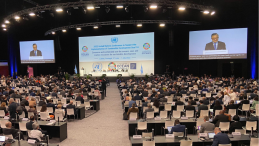Highlights
A just energy transition is essential to meeting Paris Agreement goals while ensuring economic growth and equity. Countries must implement context-specific just energy transition strategies aligned with national priorities. The Group of Seven (G7) countries play a central role in global decarbonization efforts to pursue strategies that will advance climate action without widening inequality, technology and development gaps.
Recommendations
Align support measures with developing countries’ needs and strengthen interministerial coordination frameworks to ensure a just energy transition strategy
Fulfil financing commitments and scale up investments in inclusive, clean energy projects
Facilitate technology co-development systems and inclusive carbon price development
Enhance technical assistance for vulnerable populations to ensure equal access to clean energy through evidence-based information




